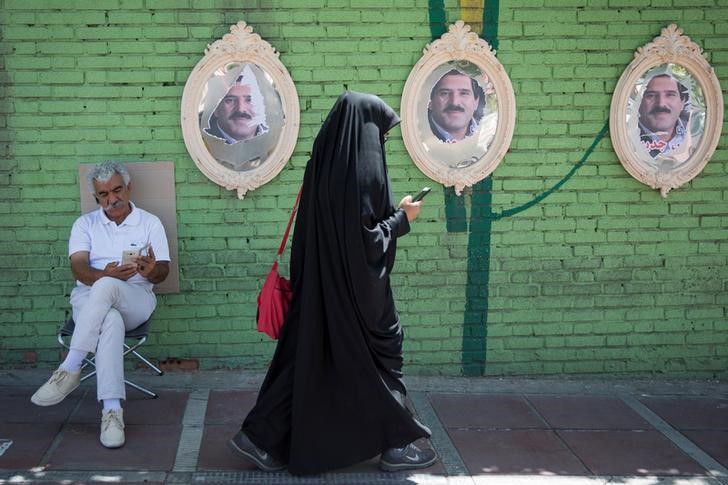(Bloomberg Opinion) -- Western corporations had what one European CEO recently called a "moment of enthusiasm" for Iran after the lifting of sanctions in 2016 — but it had begun to cool down long before President Donald Trump said he would re-impose them.
Uncertainty about the direction of U.S. policy toward the region lingered long in the minds of executives, particularly those in the banking industry hit by record fines for sanctions violations. Those companies that did have high hopes for Iran found they were never really matched in reality amid the practical difficulties of investing in a frontier market.
While Trump's move is a set-back for firms like Boeing (NYSE:BA) Co. and oil giant Total SA (PA:TOTF) that announced big investments in the country, it's hard to argue that global business had more than dipped its toe in the market.
According to the United Nations, foreign direct investment flows into Iran in 2016 totaled $3.4 billion, well up on 2015 — but still below the levels seen in 2011 and 2012. As a proportion of gross fixed capital formation in Iran, inward FDI was a relatively low 3.9 percent, below Pakistan and Turkey at about 5 percent, and below the global level of 9 percent.
After the initial flurry of interest in 2016 came the reality of doing business in the Islamic Republic, a country still listed as a state sponsor of terrorism by the U.S. State Department and as a threat to the international financial system by the Financial Action Task Force on Money Laundering.
European companies found their banks largely unwilling to support their projects and take on Iran credit risk — largely due to huge fines laid down by the Obama administration for sanctions-busting. Getting money in and out of the country remains a big issue requiring complex workarounds and higher costs.
Nor should we forget the more mundane problems of doing business in a frontier market. Iran's economy has a lot of positives — a large domestic market, low external debt, and rich commodity reserves — but also a lot of negatives. The U.K.’s own overview of doing business in Iran highlights the barriers posed by complex regulations, ineffective government enforcement, and the dominance of vested political and economic interests.
A lack of corporate transparency has made due diligence in Iran challenging, according to Matthew Townsend, a partner at Allen & Overy. All this has meant that companies have found that reaping profits from the country will take longer than they had expected.
Stefano Cao, CEO of Saipem SpA, an Italian oil services company active in Iran, said last month that "there has been a cool-down" after the initial enthusiasm about Iran. It's not hard to see why companies' investments never matched their initial interest.
Whatever follows the U.S. withdrawal from the nuclear deal — be it exemptions or carve-outs for non-U.S. investors, or a protracted renegotiation to get Trump back on board — CEOs now have even less reason to allocate capital to Iran.
